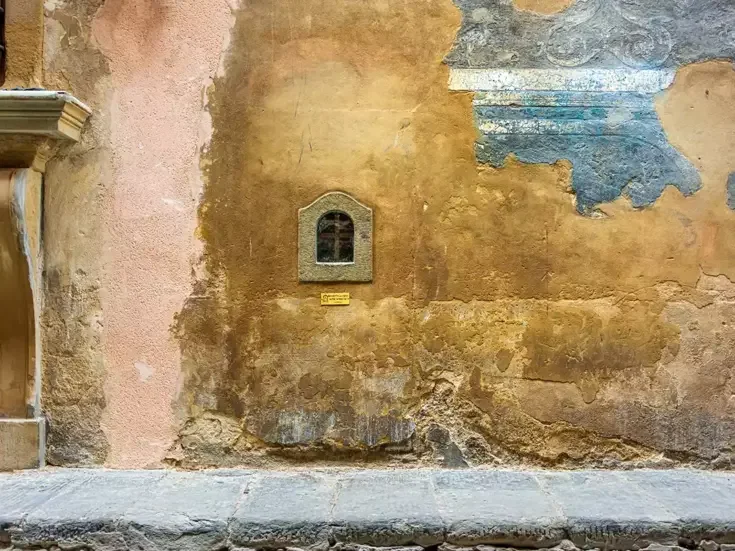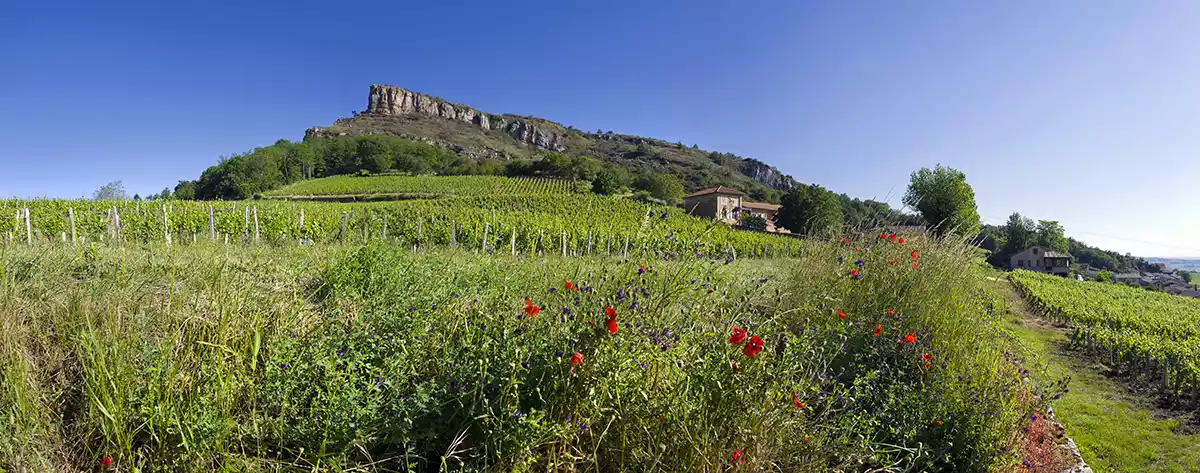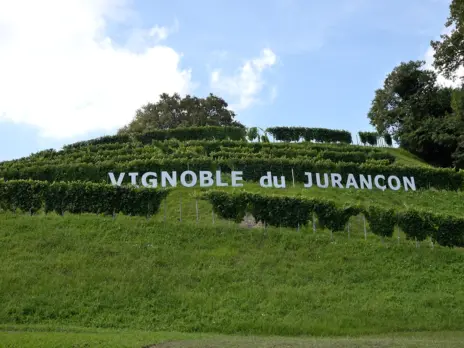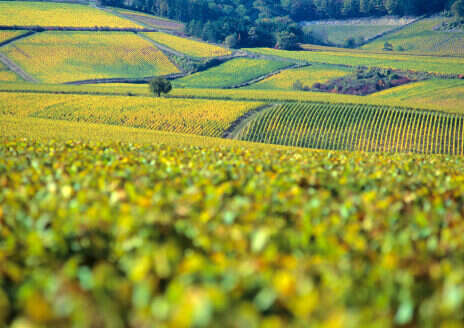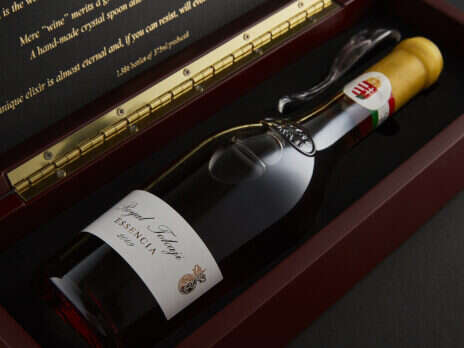
Olivier Krug leans back against the front bar of Adelaide’s Exeter Hotel while Australian musician Nick Cave watches intently from within a frame up on the wall. In one hand he holds an enchilada, scorched at the edges, cold in the middle—the kind of physics-defying cooking that can only be done in an ancient toaster oven. In the other, he holds a 7-ounce beer glass, the preferred vessel of frugal pensioners and those with a pathological fear of their beer warming too fast.
This incongruous scene becomes even more so when you zoom in on that glass. It has his surname embossed in gold and is filled not with beer but with the liquid that has made that name a byword for the very best in Champagne. But then, incongruity is what the Exeter does best. In other parts of the world, the places that can claim to sell the most Krug in their respective markets are luxury hotels and Michelin-starred restaurants. In Australia, that title was held for years by a time capsule pretending to be a pub, a place where the ghosts of front-bar philosophers and piss-trough poets still hover over shabby stools and the bathrooms are so bad you’d hesitate to use them even after swallowing a live grenade and needing a moment of cubicle contemplation to save your life.
On the surface of it, the connection between the most prestigious of Champagne houses—a jewel in the portfolio of the world’s most prominent luxury goods business—and an Adelaide pub with a dress code that could be summarized with the words “pants are polite” seems incongruous. But when you dig deeper, it begins to make sense.
Australian veneration in reverse
It was the great Australian wine writer Philip White who badgered the then-publican Nick Binns to put Krug on the old chalkboard wine list that still hangs over the bar. This was back in the mid-1980s, when the pub was establishing itself as the preferred watering hole of Adelaide’s artists, writers, and, crucially, winemakers. This was a place where, for a while, the mythologized Clare Valley producer Wendouree made the house red, sold over the bar for A$6 a glass.
White was such a fixture of the place in those days that several bar stools are still sculpted to the grooves of his backside. White was a great friend of Olivier’s father and uncle, Henri and Rémi Krug, and was keenly aware that a pub as distinctive as this one should serve nothing but the most individual Champagne. Binns wasn’t sure quite how to price a wine more expensive than the rest of his list combined, so he slapped on the same thin markup he applied to everything else. It became the cheapest place in Australia to get your hands on a bottle of Krug.
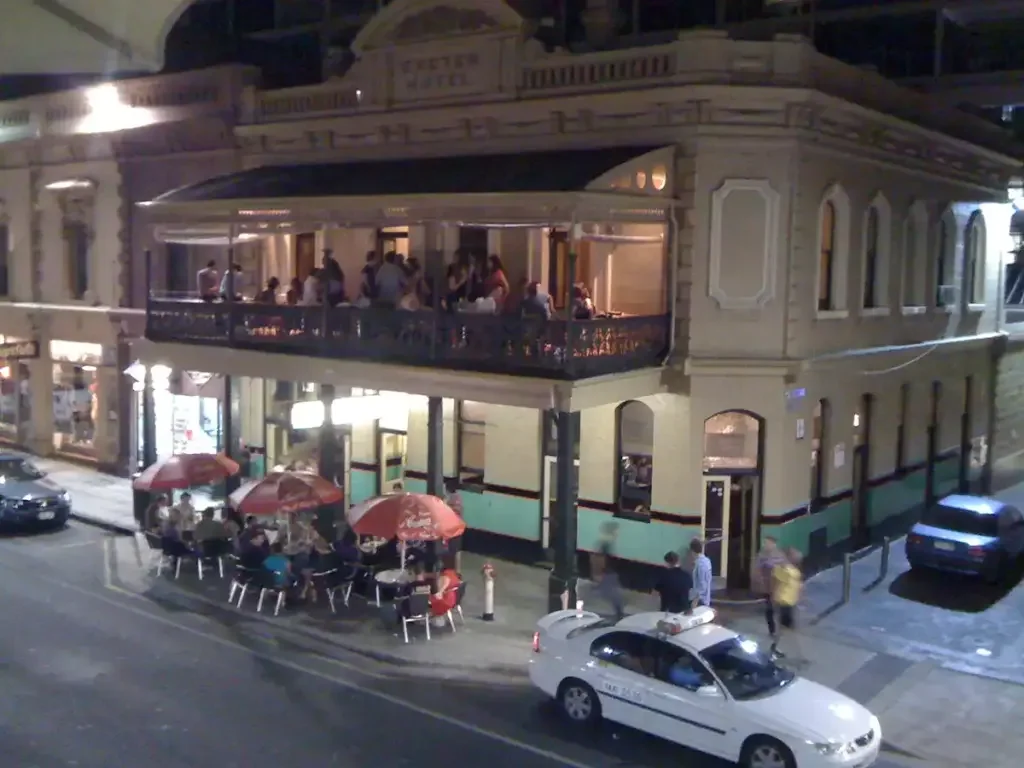
As if drinking the world’s finest Champagne in the shabby splendor of the Exeter wasn’t wacky juxtaposition enough, a local tradition developed demanding the noblest fizz should be drunk in the humblest of glasses. While flutes are offered by bar staff when a bottle of Krug is ordered, those in the know insist on tiny beer glasses instead. The 7-ounce “butcher” glass takes its name from a time when slaughtermen from an Adelaide abattoir would arrive at the rail yards five minutes earlier than the rolling livestock they were sent to collect in order to duck across to a nearby pub for the cheekiest of quick beers.
“A butcher of Krug at the Ex” has become a rite of passage for visiting wine people, its quirky legend having spread around the world. Enology students at the University of Adelaide pool meager funds to splash out at the end of the academic year, and I have lost track of the number of times over the 35 years I’ve been drinking there that I’ve justified unwise decisions with the words, “It’s never too late for Krug.”
With the release of the 166th edition of Grande Cuvée, Olivier decided 166 butcher glasses should be produced. Embossed, numbered, and rapidly snapped up—one glass per bottle sold—Olivier holds glass no.1, current publican Kevin Gregg has no.2, and I cherish no.3. Each subsequent release has followed suit. Olivier’s daughter Clémence collected her glass when she made her first visit in 2023 (and proved herself a very skilled 2am darts player).
The butcher-glass tradition speaks volumes about both Krug and the Exeter. There’s a muscular manifestation of the Australian instinct to venerate in reverse, to treat something special with a flippancy that only serves to betray the esteem in which it’s actually held.
And that’s something Olivier Krug has learned to love through several visits in recent years. “Krug is comfortable wherever people love Krug,” says Olivier each time he comes back to the bar that underlines that principle more than any other. It’s an unlikely pairing, but somehow it just works.
